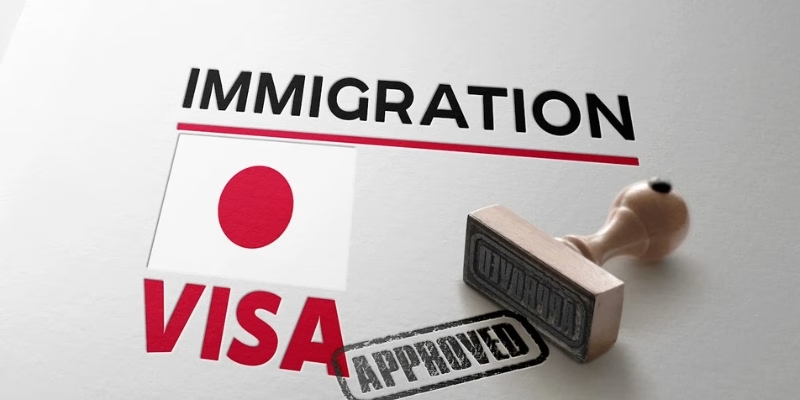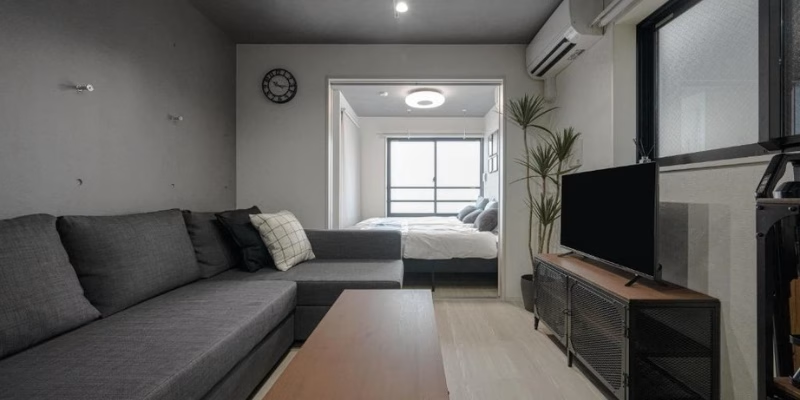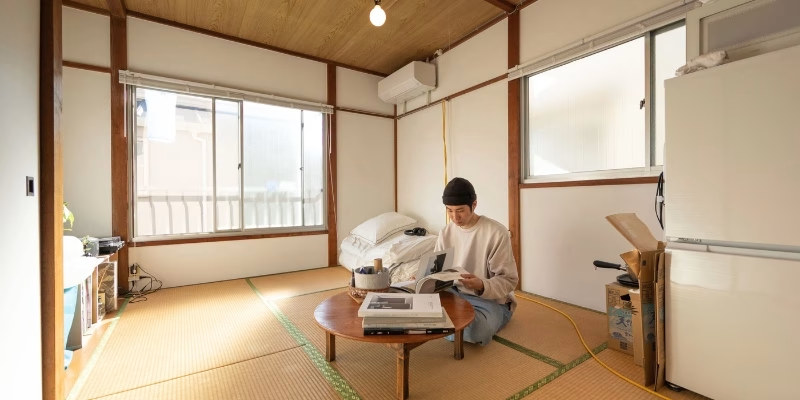Guarantor system Japan is a crucial part of renting an apartment, ensuring landlords get paid even if tenants default. Whether you’re a foreigner, student, or professional moving to Japan, knowing how the guarantor system and rental guarantee companies work can make your apartment search smoother and stress-free.
What Is a Guarantor Company?
In Japan, landlords almost always require a guarantor (hoshōnin, 保証人) when you rent an apartment. This guarantor takes financial responsibility if you fail to pay rent or cause property damage. Traditionally, this role was filled by a Japanese relative or close friend. However, as lifestyles changed and more foreigners began renting in Japan, a new option emerged – the guarantor company (hoshō gaisha, 保証会社).
A guarantor company acts as a professional intermediary between tenants and landlords. Instead of asking a personal acquaintance to vouch for you, you pay a fee to the company, which guarantees to cover unpaid rent on your behalf. This reduces the burden on both the tenant and landlord and has become standard practice in most urban rental markets, especially Tokyo, Osaka, and Nagoya.
Today, more than 80% of rental properties in major cities require tenants to register with a guarantor company. This system simplifies the rental process and offers security to all parties involved.
How Your Visa Type Affects Guarantor Company Approval
When applying for rental housing under Japan’s guarantor system, your visa type often influences how smoothly the screening process goes and how much the guarantor service may cost. Since guarantor companies take financial responsibility if you fail to pay rent, they assess each applicant’s stability, employment status, and residence type carefully. However, the final decision can vary depending on the landlord and property management company.
Working Visa Holders
Applicants with a working visa generally have a higher approval rate, as they tend to show stable income, employment proof, and longer residence plans – factors that reduce the company’s financial risk. Still, approval criteria and fees can differ from one property to another.
- Typical Approval Trend: Relatively high
- Commonly Requested Documents: Employment certificate, salary statement, residence card
- Usual Initial Guarantee Fee: Around 50%–100% of one month’s rent
For instance, if the monthly rent is 100,000 yen, the initial guarantor fee may range between 50,000 and 100,000 yen. Renewal fees are usually around 10,000–20,000 yen per year, but some landlords or management firms may have slightly different terms.
Student Visa Holders
Students may find the guarantor process a bit more challenging, as most lack full-time employment or consistent income. Therefore, many guarantor companies evaluate student applicants more carefully, and the approval rate often depends on the landlord’s policy and the guarantor company’s flexibility.
- Typical Approval Trend: Medium to low
- Commonly Requested Documents: Student ID, admission letter, proof of financial support
- Usual Initial Guarantee Fee: Around 100% of one month’s rent
Some guarantor companies may also request an emergency contact or a co-signer living in Japan. On the other hand, certain firms specialize in student guarantees, offering more flexible plans for university or language school students.

Guarantor Companies That Support Foreign Residents in Japan
Finding a guarantor company that accepts foreign nationals can make the rental process in Japan much smoother. These companies often act as intermediaries between the tenant and the real estate agent. After you apply for a rental property through an agent, the agency forwards your application and documents to the guarantor company, which then begins the screening process.
Fortunately, several major guarantor companies specialize in supporting non-Japanese residents, offering multilingual assistance and flexible screening systems tailored to different visa types. This ensures that foreign tenants can navigate Japan’s rental system with greater ease and confidence.
Guarantor Company | Visa Types Commonly Accepted | Initial Guarantee Fee of total monthly rent | Japanese Language Required | Languages and Service Features |
Global Trust Networks (GTN) | Working, Student, Dependent | 70%–100% of monthly rent | Not required | Provides multilingual support in English, Chinese, Korean, Vietnamese, Nepali, and Portuguese. Known for being highly foreigner-friendly with a quick screening process. |
Casa Inc. | Working, Student | 50%–100% of monthly rent | Basic Japanese helpful | Features a simple application process and is widely accepted by landlords. |
Nihon Safety Co., Ltd. | Working, Student, Dependent | 50%–100% of monthly rent | Basic Japanese helpful | Known for flexible acceptance of various visa types and reliable assistance. |
Orico (Orico Forrent Insure) | Working, Student, Dependent | 50%–100% of monthly rent | Basic Japanese helpful | Provides reliable rent guarantee service backed by a major financial institution. Commonly used by landlords across Japan. However, multilingual support is limited and communication is generally in Japanese. |
|
J-lease | Working, Student, Dependent | Around 50%–100% of monthly rent | Basic Japanese helpful | Widely accepted nationwide and known for quick screening. Annual renewal fee may apply. |
Ielove | Working, Student | 50%–100% of monthly rent | Basic Japanese helpful | Provides rent guarantee and 24-hour support service. Primarily operates in Japanese. Known for being reliable and easy to apply through affiliated property agencies. |
Screening Procedure and Duration
Before approval, the guarantor company carefully checks your application details. It operates through an organized sequence:
- Document submission – Your real estate agent or landlord will ask for necessary documents such as ID, residence card, and proof of income, bank balance.
- Credit check – The guarantor company examines your financial reliability, employment, and visa status.
- Confirmation call – You (and sometimes your employer or school) may receive a short phone call verifying your details.
- Approval or rejection – The decision is typically made within 1 to 3 business days, though some companies respond within 24 hours.
If approved, you’ll sign the rental contract along with the guarantor company agreement. If rejected, your agent may recommend an alternative company or help you find a “no guarantor required” property.

Things to Submit for Application
To speed up your guarantor company application, it’s important to prepare the necessary documents in advance. When you apply for a rental property, you will first provide these details to your real estate agency. The agency will then forward your application and documents to the guarantor company, which will begin the screening process (shinsa). This step usually takes one to three business days, depending on the company and your visa type.
The following are standard documents for most applications:
- Passport
- Residence Card (applicable to non-Japanese residents)
- Employment Certificate or Student Identification
- Proof of income (such as recent payslips, tax statement, or bank statement)
- Emergency contact information (usually someone living in Japan)
- Property details (rental amount, address, landlord or agency name)
Optional documents such as a My Number Card, bankbook copy, or letter of admission may also be requested depending on your visa status or financial situation.
Providing accurate and complete information at the beginning helps ensure a smoother and faster review process.

Advantages and Disadvantages of Using a Guarantor Company Compared to a Personal Guarantor
Before deciding which guarantor option suits your situation, it’s helpful to understand how each type works in practice. The table below compares the main advantages and disadvantages of using a guarantor company versus a personal guarantor.
Category | Advantages | Disadvantages |
Guarantor Company | No need to rely on family or friends to take legal responsibility. Accepted by almost all real estate agencies. Fast and professional screening process. Provides language support in multiple languages across major cities. Reduces personal stress if financial issues occur. | Service fees increase total move-in cost. Requires annual renewal and additional paperwork. Some landlords only accept specific guarantor companies. |
Personal Guarantor | No service or renewal fees. Simple if the guarantor is financially stable and trusted by the landlord. | Hard for foreigners or newcomers to find a suitable guarantor. May involve complicated paperwork and long approval times. Landlords often prefer company-backed guarantees for higher reliability. |
In conclusion, for most foreign residents or students, guarantor companies offer a more realistic and efficient solution.
Costs When Using a Guarantor Company
Costs vary depending on the guarantor company and the property management policy, but here’s a general overview of what you can expect:
Fee Type | Description | Typical Cost |
Initial Guarantee Fee | To be paid when the lease is finalized | 30%–100% of one month’s rent |
Annual Renewal Fee | Paid yearly to maintain the guarantee | 10,000–20,000 yen |
Monthly Guarantee Fee | Charged monthly as part of the ongoing guarantee service | 1%–2% of monthly rent |
Re-application Fee | Required when you move to another apartment | 10,000–30,000 yen |
Late Payment Fee | Applied if rent payment is delayed | 10%–20% of unpaid rent |
For example, if your rent is 80,000 yen per month and your guarantor company charges 50%, your initial fee will be 40,000 yen. Add to that an annual renewal fee of 10,000 yen, and you can estimate your total yearly cost.
FAQ About Rental Guarantor Companies
If I Have a Guarantor, Do I Still Need to Use a Guarantor Company?
In many cases, yes. Even if you already have a personal guarantor, some landlords and property management companies require you to use their affiliated guarantor company. This policy helps minimize risk and standardize rental procedures.
Can I Choose My Own Guarantor Company?
Usually, the landlord or agency specifies the guarantor company you must use. However, if you have experience with a specific company from a previous rental, you can request to continue using them. Some landlords may approve this if they recognize the company’s credibility.
How Do Rental Properties That Do Not Require a Guarantor Work?
Properties listed as “No Guarantor Required” operate differently. These apartments are typically managed by companies that already include risk coverage in the rent or have a special system to handle payment issues.
This housing option works well for:
- Short-term stays
- International students
- Overseas professionals moving to Japan
Many Arealty Japan listings clearly mark whether a guarantor is required, helping you narrow your search quickly.
Why might a guarantor company reject an application?
Applications can be declined for several reasons, such as insufficient income, unstable employment, short-term visa status, or incomplete documents. Every company follows its own evaluation standards.
What are your options if the application is denied?
If a guarantor company rejects your application, you can ask your real estate agency to submit your application to a different company that may have more flexible criteria. Choosing a company familiar with foreign tenants or specific visa types often improves the chances of approval.
Is the Guarantor Company Responsible for Property Damage?
No. Guarantor companies only cover rent-related obligations, not property damage. Any repairs or restoration costs are your responsibility and usually deducted from the security deposit at move-out. To protect yourself, take photos when moving in and consider basic renter’s insurance.
What questions are usually asked during a guarantor company phone call?
During a verification call, the company may confirm your personal details, employment or student status, monthly income, emergency contact information, and sometimes ask about your guarantor (if any). The purpose is to verify that all provided information is accurate and to assess your ability to pay rent on time.

Start Your Tokyo Apartment Search with Arealty Japan
Searching for a place to live in Tokyo can feel overwhelming, especially for newcomers who are unfamiliar with Japan’s rental system. Between guarantor requirements, various move-in fees, and lease contracts often written in Japanese, the process can quickly become complicated. Partnering with a professional team can simplify everything.
Why Work with Arealty Japan?
- Multilingual Assistance: Our team speaks English, Japanese, and Vietnamese, ensuring clear communication throughout your apartment search.
- Local Market Knowledge: We understand Tokyo’s housing landscape and the unique needs of international residents.
- Comprehensive Support: From browsing listings and arranging viewings to signing contracts and moving in, we guide you at every step.
- Transparent and Straightforward Process: No hidden costs, no confusing paperwork-just honest advice and reliable service.
With Arealty Japan, renting an apartment in Tokyo becomes much easier. Whether you’re seeking a cozy studio or a larger family apartment, our bilingual staff helps you find a home that matches your budget and lifestyle. Focus on settling into your new life in Japan while we handle the details.
Contact: 050-6864-9697
Website: https://arealty.jp
Conclusion
The guarantor system in Japan is designed to protect landlords and streamline rental procedures, but it can feel confusing for newcomers. By understanding how guarantor companies operate, their costs, and their benefits, you can rent confidently and avoid common issues.
Whether you’re a student, expat, or professional relocating to Japan, using a guarantor company can simplify your move and ensure a smooth start to your new life.
If you’re searching for no guarantor apartments, low initial costs, or foreigner-friendly listings, Arealty Japan offers updated property information and personalized support to help you find your ideal home quickly and safely.






Leave a Reply